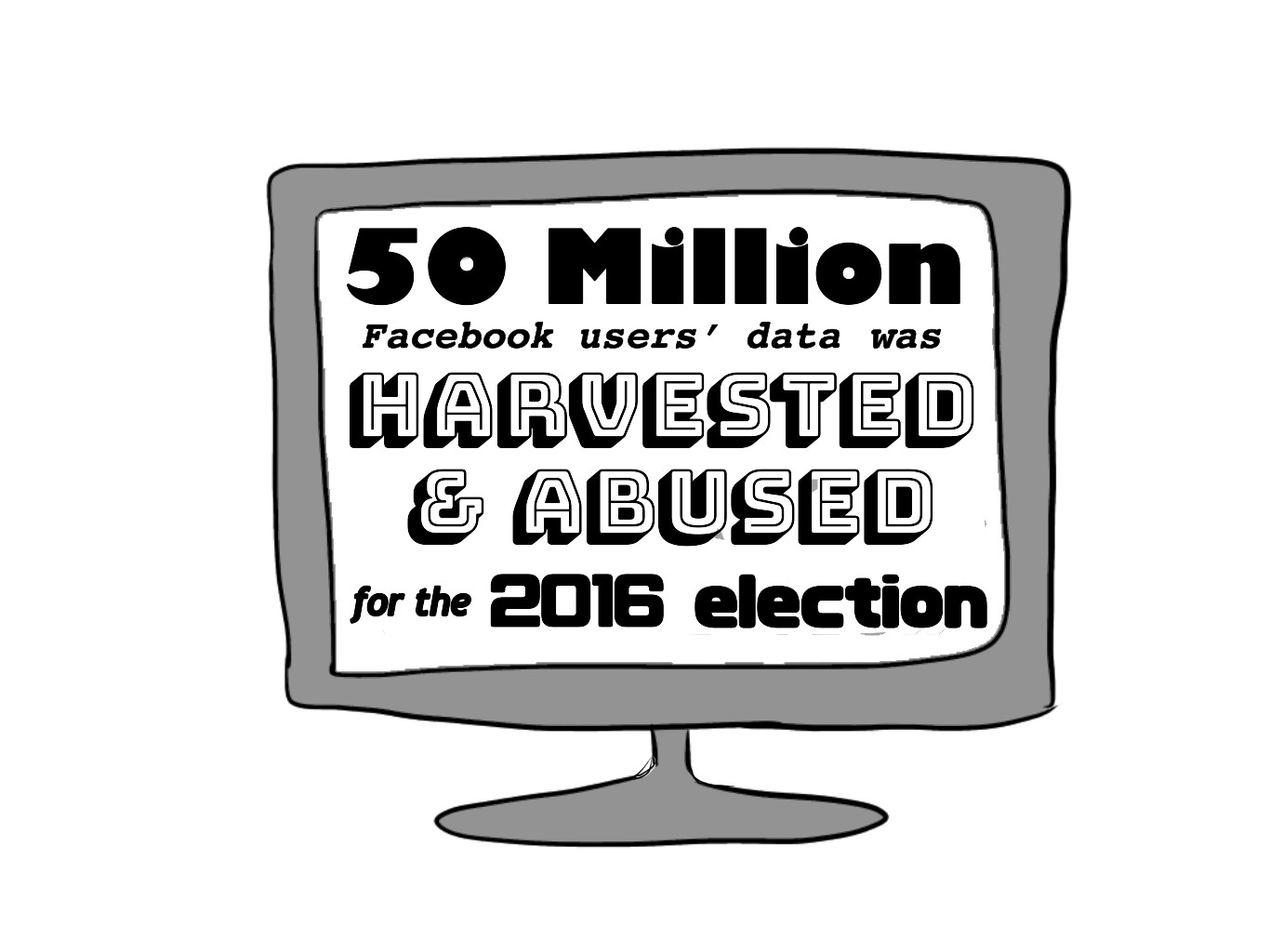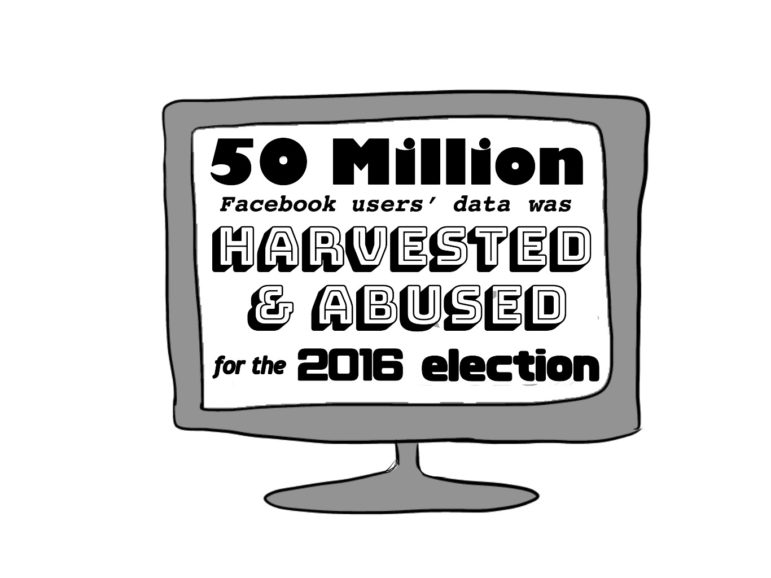

Living in a world of smartphones, the internet and social media platforms, most teenagers in this day and age undergo a new set of challenges regarding social media and data privacy. Within the past few months, awareness of the importance of privacy in social media has heightened.
The recent situation with Facebook reveals how one’s privacy, more specifically on social media platforms, can be inadvertently — by both the social media platform or the consumer — compromised.
On March 17, The New York Times revealed that Cambridge Analytica, a political firm, harvested data from about 50 million Facebook users, and abused this information to influence the 2016 presidential election. Although Facebook had given Cambridge Analytica consent to extract data, its intention was not for them to go as far as harvest and use these statistics on such a wide scale.
Given a big spotlight in the headlines, this data breach raises concerns on the assurance of cybersecurity and more specifically social media privacy, affecting billions of users worldwide, including most Aragon students.
“For the recent events of Facebook, I wasn’t at all too surprised,” said sophomore Shoryoung Gong, “because I usually know a big CEO like Zuckerberg works in the gray area more of their time.”
Freshman Rikio Dahlgren believes the data breach is a flaw in the company’s ethics.
“I think it’s kind of Facebook’s fault,” Dahlgren said. “They have a duty to protect their users’ information and they need to follow through with it.”
Kirthiga Reddy, former managing director of Facebook India, explains her view on this situation, acknowledging both sides of the argument.
“I think it goes both ways,” she said. “There is room for improvement from the provider side as well as from the consumer side. This is a tipping point for not just Facebook, but for the entire industry. We have been seeing Facebook responding very quickly and seen them to make many enhancements in data privacy.”
Though Facebook has recently taken much of the blame for endangering users’ privacy, there are other social media platforms that haven’t.
“There is an option of adding people on Snapchat … where there are people from your contact list that you can add,” said junior Lauren Pereira. “I’ve never really reflected over these questions before, but yes, I do care if my information is being used in ways that I couldn’t like or didn’t consent them to use.”
According to Jamie Barnett, a certified cybersecurity expert and Chief Customer Officer at Scalar, the definition of data security has three components: confidentiality, integrity and availability.
“There are a number of laws around this and they differ from country to country,” Barnett said. “However, in some cases, companies don’t follow this law.”
Barnett explains that up until now, companies worldwide have not been strict about following data privacy laws except in certain countries, such as Germany, where these laws are more aggressively enforced.
“Many countries [such as the United States] do have laws on this, but most people don’t follow them as strictly … primarily because the enforcement of those laws are lax,” Barnett said. “If you have a law but you don’t hold organizations to it, then it won’t be followed.”
Barnett explains the problem of cybersecurity in today’s society in a nutshell.
“People are so very often compelled by things like how fun the program or game is that they will … get more lax on their own privacy,” she said. “The warning signs are there for them to read, but they don’t read them.”
Reddy offers advice to youth using social media, emphasizing the importance of awareness.
“I want [youth] to be aware of what [they are] sharing and where [they] are sharing,” Reddy said. “I worry that … teenagers use a whole slew of other apps. There are apps that are targeted towards children which collect [their] data that parents are not aware of this.”



